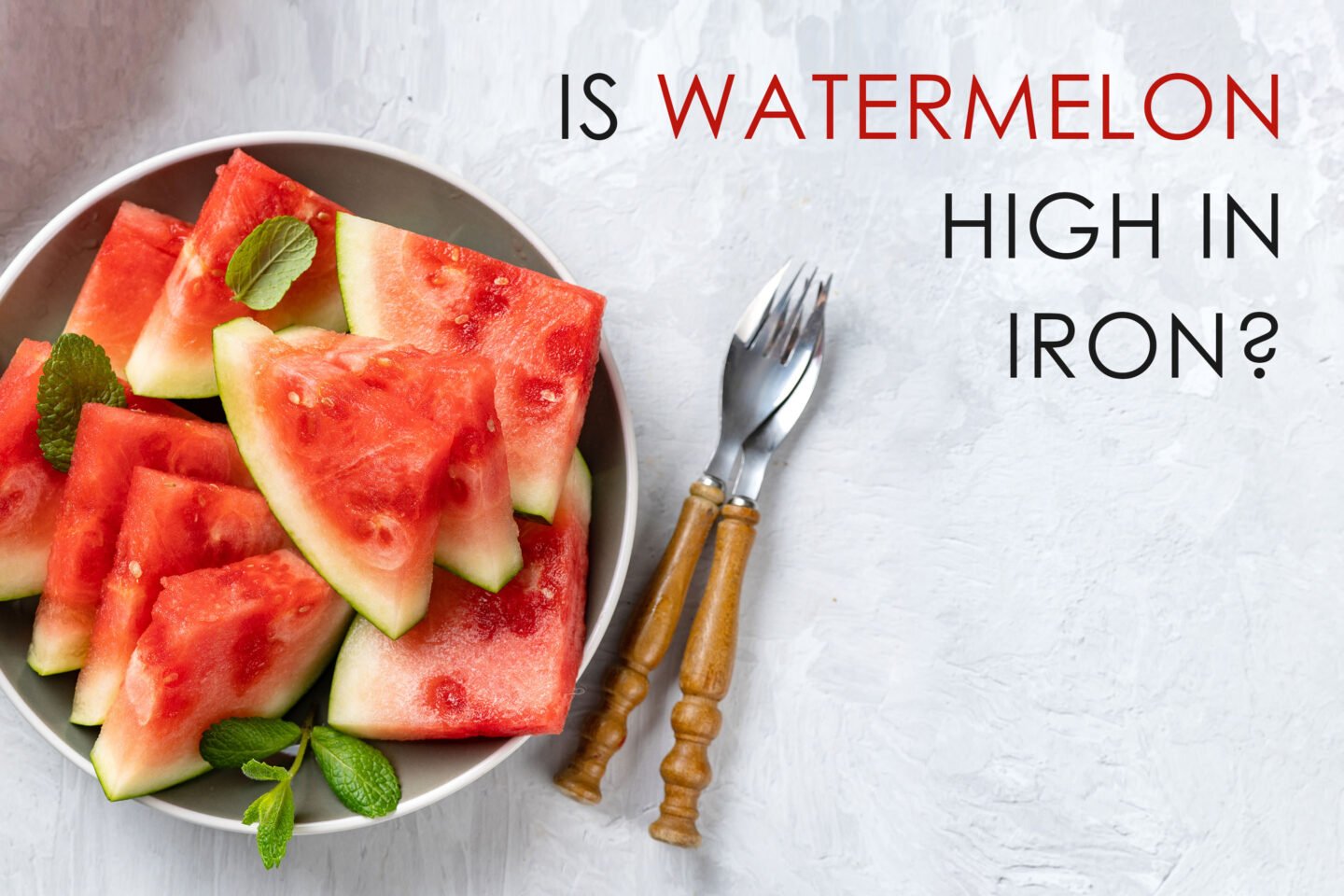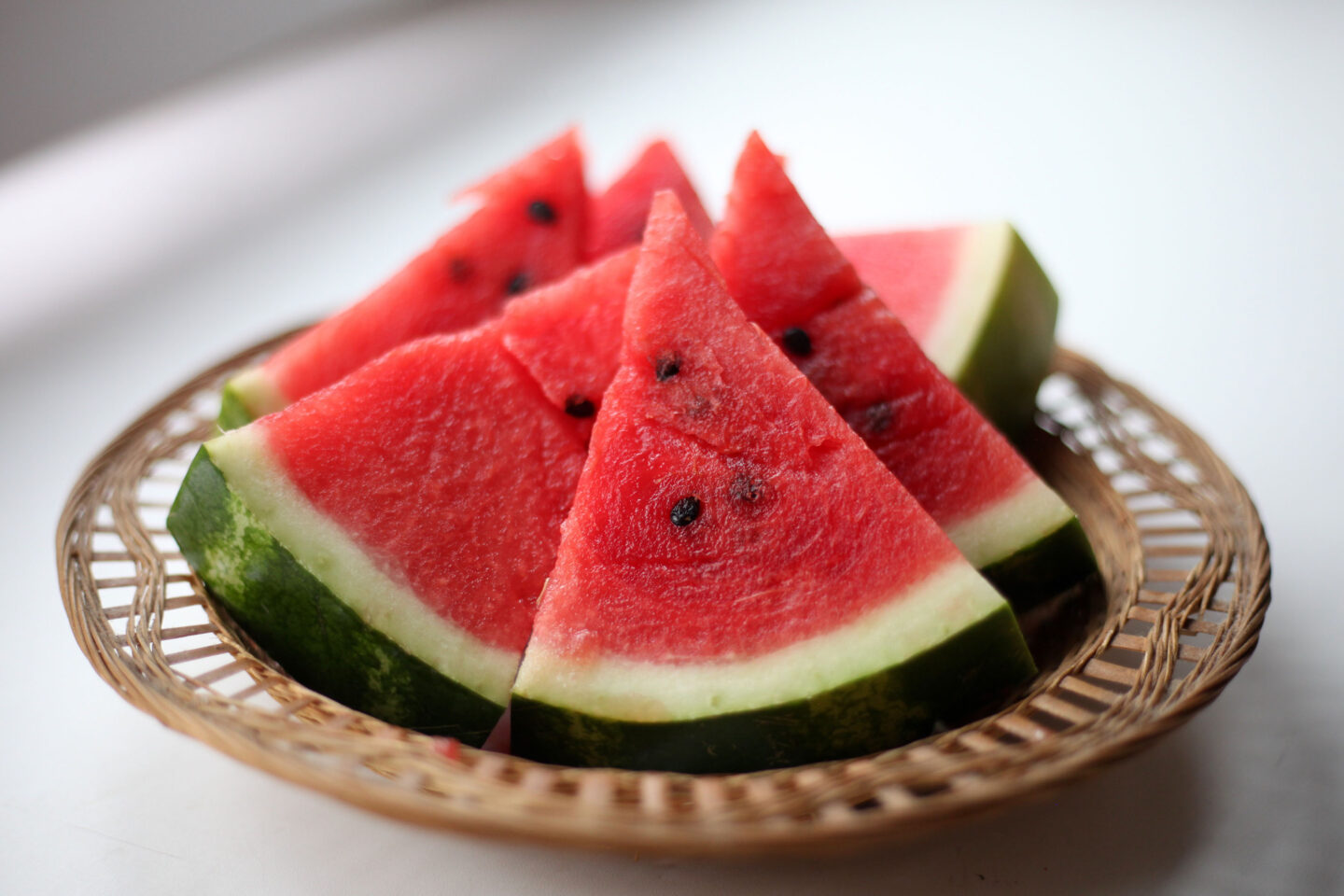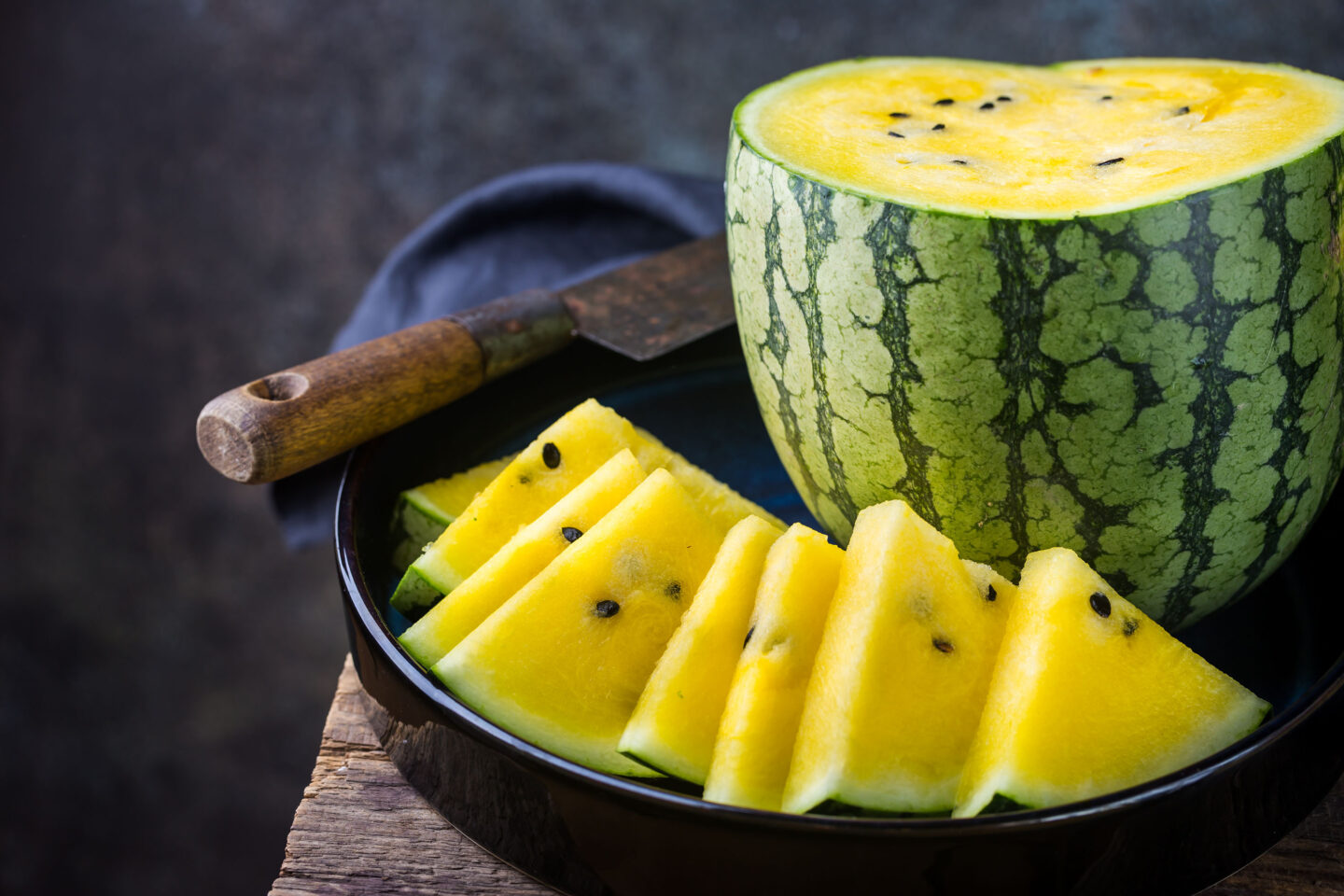Watermelon is one of the most delicious, refreshing fruits on a hot summer's day. It’s also highly nutritious, so it's a perfect treat as the mercury climbs higher.

Many fruits are high in iron, essential for energy levels and cardiovascular health. If you're feeling lethargic or your diet lacks iron, you'd benefit from adding iron-rich fruit to your meals.
So, does watermelon fit into this category?
Table of Contents
Is Watermelon High or Low in Iron?
Watermelon is low in iron, so it won't contribute much to you reaching your recommended daily intake.
However, watermelon contains a lot of vitamin C, which aids iron absorption.
How Much Iron Is in Watermelon?
A slice of watermelon contains approximately 0.7mg of iron, around 4% of the recommended daily intake; however, many people eat more than a slice.
In contrast, dried watermelon seeds are a great source of iron, with an ounce containing around 11% of the recommended daily intake.
Can You Get Too Much Iron from Watermelon?
It would be impossible to get too much iron purely by eating watermelon.
In fact, it would be very difficult to get too much iron from any single food source. Your body doesn't store iron, and eating a balanced diet will keep your intake within the recommended range.
Can Watermelon Help Prevent Anemia?

Although watermelon is low in iron, its vitamin C and other compounds contribute to healthy hemoglobin levels, which help prevent anemia.
Watermelon is best eaten fresh, but many doctors recommend watermelon-pomegranate juice to increase your hemoglobin levels.
Is Watermelon Healthy?
Watermelon is very healthy, and a slice contains around 86 calories, mostly from carbohydrates and sugars. Carbs from fruit don’t tend to negatively affect your blood sugar levels.
Vitamin C helps your immune system function properly, reducing your risk of catching seasonal illnesses like the common cold or flu.
Watermelon is 92% water, keeping you hydrated without adding artificial sweeteners. Because of the high water content, eating watermelon might also aid in weight loss, as your body often confuses dehydration with hunger.
It also contains many potent plant compounds, including citrulline, an amino acid that can improve exercise performance and boost heart health.
Watermelon is also rich in antioxidants, such as vitamin C, carotenoids, and lycopene, which help flush out harmful free radicals, preventing oxidative damage and cellular and tissue stress. They also prevent age-related damage to your organs, boost cognitive health, and fight against early-onset dementia.

Conclusion
Watermelon is low in calories but rich in nutrients, which makes it an excellent addition to any healthy diet.
